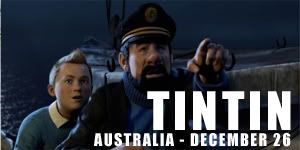WOW! Thanks for that interview. It cleared a couple of confusing parts about the manga. I still think the ending was inconsistent with Nausicaa's nature, but in 13 years of doing something you seemed to wish you didn't have to, I guess these things can happen.
One thing that annoys me about this interview is that Hayao Miyazaki would never actually put some label on his beliefs. He referenced different religions, but I could never see him declaring he believed absolutely this or that. It was all very obscure. The closest I can come to seeing what he believes is that the universe is dark and meaningless.
A Disappointed Nausicaa Fan Rant Thread
35 posts •
Page 2 of 2 •
- 1
- 2
-

Prince Asbel - Posts: 588
- Joined: Tue Apr 01, 2008 8:26 pm
- Location: West Virginia. No, I am not a country hick.
Do you really think so little is reflected in his movies? I'm not so sure. When I read through his interviews, I think I realized why I'm so attracted to Miyazaki's work as a goth. Like the romantics and neo-romantics, we dark romantics can be filled with a desire to return to the innocence of childhood, which may manifest itself in a desire to fill our heads with fantasy and fairy tales from time to time (hence the ubiquity of imagery drawn from such sources in the gothic subculture). But with Miyazaki's work, I always felt like the attraction runs deeper than that. I now understand that it was because I could understand and empathize with the darker aspects of his movies and the way his characters react to the situations they find themselves in.Warrior 4 Jesus (post: 1222184) wrote:Yes, he seems to be a tormented but very creative guy. He obviously kept most of his angst and darkness out of his movies though.
Still, it doesn't change the fact that he's an amazing director/animator etc.
I think that underneath the beauty and wonder of Miyazaki's films lurks darker themes of deep struggle and emotional turmoil. If you look closely at his movies, you will find stories of lost children (which Thomas. C. Foster informs us are "all the rage in the age of existentialism and thereafter") who struggle with grief, pain, fear, anxiety, doubt, depression, feelings of worthlessness and futility, fatalism, alienation, and loneliness. To make matters worse, his characters find themselves struggling uphill against a cold and apathetic world that would bring them to a grotesquely unhappy ending if it had its way. Its noticeable in the interview I posted that Hayao Miyazaki's big criticism of nihilism is that it is not conductive to creating, especially creating solutions to problems. Likewise, the characters in Miyazaki's films find their liberation and redemption from their hardship and suffering in creation (both natural and synthetic) and in creating.
-

GhostontheNet - Posts: 1963
- Joined: Mon Aug 02, 2004 12:00 pm
- Location: Aurora, CO
I guess his angst/dark feelings are reflected more commonly in his movies than I first thought, but it's not terribly overt.
-

Warrior 4 Jesus - Posts: 4844
- Joined: Tue Sep 07, 2004 10:52 pm
- Location: The driest continent that isn't Antarctica.
I think it's a bit premature to say his world view is defined by his dark feelings. Most of us run the gambit from light to dark in our moods, but our world view is not defined by any one facet of our personalities but rather by a blending of them.
I would say it's pretty clear by his movies that he also sees a very positive side to our existence. His movies hit a cord with so many because he does not focus exclusively on either the dark or the light, but portrays a fictional but believable world that we can imagine ourselves being a part of. The darkness does not win in the end, either.
I would say it's pretty clear by his movies that he also sees a very positive side to our existence. His movies hit a cord with so many because he does not focus exclusively on either the dark or the light, but portrays a fictional but believable world that we can imagine ourselves being a part of. The darkness does not win in the end, either.
[color="Red"]Please visit Love146.org[/color]
A member of the Society of Hatted Members

If your pedantic about grammar, its unlikely that you'll copy and paste this into your sig, to.
A member of the Society of Hatted Members

If your pedantic about grammar, its unlikely that you'll copy and paste this into your sig, to.
-

termyt - Posts: 4289
- Joined: Sat Jun 26, 2004 12:00 pm
- Location: oHIo
The page number in question is 103 in the brown and white, 7 volume A4-sized version of Nausicaa.
I'm very conservative when it comes to tolerating nudity and that page does nothing to turn me on. On scale of 1 to 10, 10 being the most filthy nudity ever, Nausicaa rates about 1.5.
I'm very conservative when it comes to tolerating nudity and that page does nothing to turn me on. On scale of 1 to 10, 10 being the most filthy nudity ever, Nausicaa rates about 1.5.
-

Warrior 4 Jesus - Posts: 4844
- Joined: Tue Sep 07, 2004 10:52 pm
- Location: The driest continent that isn't Antarctica.
35 posts •
Page 2 of 2 •
- 1
- 2
Return to Manga and Manga Reviews
Who is online
Users browsing this forum: No registered users and 56 guests

